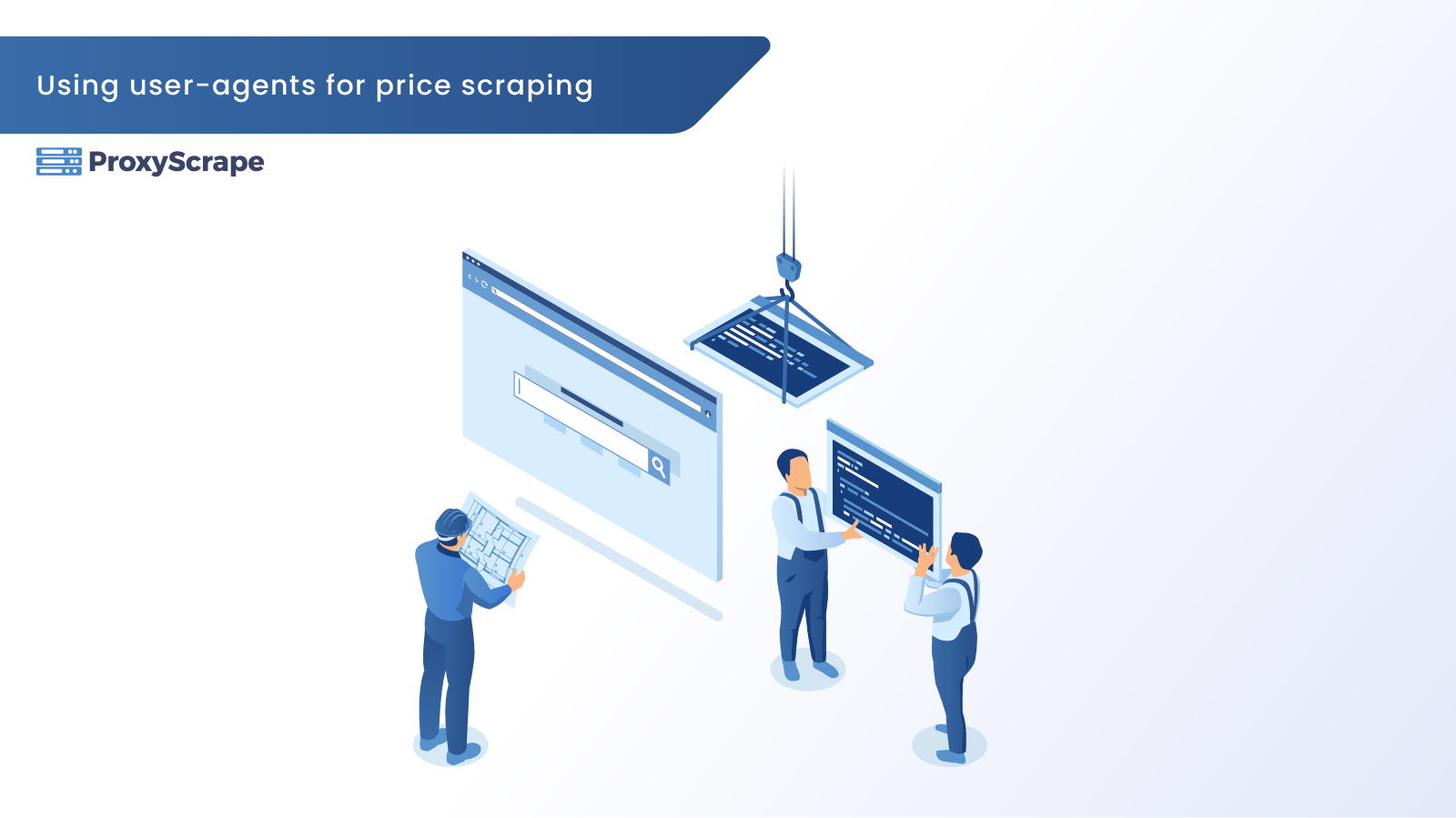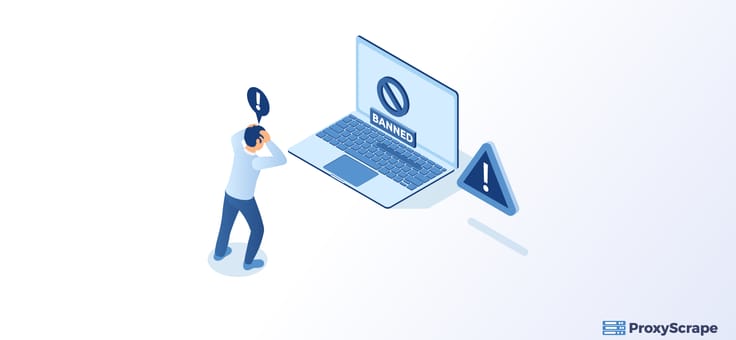Using User-Agents For Price Scraping

Many businesses perform price scraping to extract data from competitor websites to stay ahead of the competitors. To implement it, often, people use bots or web crawlers where you’re likely to confront several challenges such as IP blocking from host websites. This is where you need to know how to use a user agent to
Many businesses perform price scraping to extract data from competitor websites to stay ahead of the competitors. To implement it, often, people use bots or web crawlers where you’re likely to confront several challenges such as IP blocking from host websites. This is where you need to know how to use a user agent to send HTTP headers for effective price scraping.
Let’s start with the fundamentals of user agents before we dig deep into how you can use user agents for price scraping.
What is a user agent?
Everyone who is browsing the web accesses it through a user agent. When you connect to the internet, your browser sends a user agent string which is included in the HTTP header. So how do we define it?
To make it more apparent to you, open up your web browser and type http://useragentstring.com/.Then at the top of the page, you’re likely to get some string similar to below specifying your Browser details, the type of Operating System that you’re using, whether your OS is 32 bit or 64 bit, and much other helpful information related to your browser:
Mozilla/5.0 (Windows NT 10.0; Win64; x64) AppleWebKit/537.36 (KHTML, like Gecko) Chrome/91.0.4472.124 Safari/537.36.
Then the table that follows on that page describes each piece of string with a detailed description. You can read each part of that information to get a precise picture of your user agent.
So the webserver that you connect to needs a user agent string every time you connect to it for security reasons and other helpful statics—for instance, those required for SEO purposes.
Now you have an understanding of what user agents are. The following section will briefly overview what price scraping is before moving into appropriate user agents for scraping.

What is price scraping?
Price scraping is the process of extracting price data from websites, including your competitors and others related to your industry. The whole process includes searching and then copying data from the internet to your hard drive to analyze later. By the look of it, you may assume that you could carry out these tasks manually. However, bots such as web crawlers and scraper bots can speed up the whole scraping process by making your lives a lot easier.
Scraper bots-just like a web crawler, bots crawl the pages of websites and extract data you need for analysis. These data include the price data from your competitors and other data similar to your products.
On the other hand, scraper bots come with a price to pay, as you shall discover in forthcoming sections.
Why should you use a user agent for price scraping?
As mentioned earlier, every time you connect to a web server, a user agent string is passed through HTTP headers to identify who you are. Similarly, web crawlers send HTTP headers to execute crawling activities.
However, it is essential to keep in mind that web servers may block specific user agents, considering that the request is from a bot. Most modern, sophisticated websites only allow bots that they think are qualified to implement crawling activities such as indexing content required by search engines such as Google.
In the meantime, there isn’t any specific user agent that ideally suits price scraping as new browsers, and Operating Systems are released frequently. However, if you’re interested in exploring the most common user agents, you can find it here.
Due to the above-stated concerns, you may assume that the ideal solution would be not to specify the user agent when automating a bot for price scraping. In such circumstances, it causes the scraping tool to use a default user agent. Then again, there is a high probability that target websites will block such default user agents if they’re not part of major user agents.
So the next section would focus on how to avoid the user agent getting banned when scraping.

Tips to avoid getting your user agent banned when price scraping
When you scrape prices from websites, two pieces of information about you are visible to the target web server — your IP address and HTTP headers.
When you use the same IP address to send multiple requests to a target web server for price scraping, you’re more likely to get an IP block from the target website. On the other hand, as you just saw above, HTTP headers reveal information about your device and browser.
Like IP blocking, if your user agent does not fall into a significant category of browsers, a target website will likely block you. Many bots that scrape websites or prices tend to ignore the step of specifying the headers. As a result, the bot will be blocked from scraping the prices as mentioned in the above section.
Therefore to overcome these two key issues, we highly recommend using the following approaches:
Rotating proxies
It would be ideal to use a pool of rotating proxies to conceal your IP address each time you request to scrape prices. The most suitable proxies for this scenario would be Residential proxies, as they’re least likely to get blocked since their IP addresses originate from real devices.
Rotating user agents
For each of these requests, through a rotating proxy, you can rotate different user agents. This process can thus be achieved by collecting a list of user-agent strings from actual browsers, which you could find here. The next step is to pick each of the strings automatically when you connect through a rotating proxy.
When you implement the above two measures, it would appear to the target web server as requests originate from several IP addresses with different user agents. It’s just one device and one user agent sending requests in reality.
Conclusion
Price scraping is a tedious and challenging process. Furthermore, deciding which user agent to use for it can be another difficult decision to take. However, when you follow the best practices mentioned above, you’ll have a great chance of overcoming the blocks imposed by target websites and experience a sound price scraping process.
By selecting the most popular user agents for price scraping, you do not risk getting blocked from target web servers.